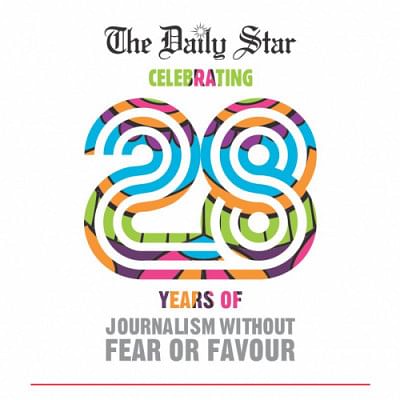Building the 'infrastructure' of the mind

Just as we need the most modern infrastructure for a fast-growing economy so also we need a robust “infrastructure of the mind” to build an advanced knowledge-based society whose fundamental features consists of the ability to differ on the basis of knowledge and think critically on the basis of reason.
Independent journalism becomes a part of this process by being the platform of that crucial public debate that can only take place where freedom of thought and expression is an inalienable right, not in theory, but in practice.
One of my lessons of 28 years of leading The Daily Star, the last 25 of it as its editor and publisher, is that as a polity we have not been able to properly understand the crucial importance of “freedom of thought and expression” and the consequent role and function of dissent in society, where journalism plays the role of a watchdog on a daily basis.
We have been stuck in the mindset that to criticise is to oppose, to disagree is to undermine, and to do both in public is to act as an enemy. And hence as journalism's primary role is to present all sides to every story, especially the side that challenges or debunks the official version, we are often looked upon as the “enemy”.
This outlook has created a wall of suspicion and antagonism between the independent media and the government. This misunderstanding -- some of it deliberate and unthinking and most of it knee-jerk -- has unfortunately resulted in a dysfunctional relationship between the government and the independent press. This in turn has resulted in the adoption of several laws in recent past aimed at harnessing the press and preventing it from playing the role that it was precisely meant to, which in my view, is suicidal. In reality, a harnessed media inevitably results in diminished democracy.
On the occasion of the 28th anniversary of this paper, I could not have a greater wish than to plead for the restoration of that space that permits journalism to flourish in all its aspects and not just be cheerleaders.
This I do so in full awareness that what Bangladesh needs today is a robust media that can publish and broadcast all sides of a story without the constant fear of falling on the wrong side of unjust “laws”.
As Bangladesh moves ahead and the world looks upon us with incredulity and as we move up the ladder of development, we need to build not only the roads and bridges on the land, we also need to develop the “infrastructure of the mind”.
The most critical ingredient of developing the mind is the capacity for critical thinking whose soul is “questioning”. Only by asking the critical questions can we get the most urgently needed answers. While philosophers, scientists, social reformers raised questions that changed our civilisations, independent journalism raises questions that bring to light the everyday plights and distortions that help the judiciary to dispense justice, parliament to make appropriate laws and the government to ensure good governance.
As The Daily Star embarks on its journey into the future we face some daunting and some very exciting challenges. The daunting ones concern the future of print media and the exciting ones are in the realm of the digital. The global trend has been the decline of the circulation of newspapers. With the spread of the internet, more and more readers and viewers are receiving their news from online. However, the good news is that till now countering the global trends, print media in South Asia has not only held steady, as in Bangladesh, Sri Lanka and Pakistan, it has actually seen a rise in Indian newspaper circulation.
Just as “Digital Bangladesh” is an emerging reality so is the coming of the digital media and we in The Daily Star are taking the necessary steps so that we can serve our readers better and in multi-platforms -- print, online, multimedia and mobile.
Howsoever the realities of the future changes, one thing will remain constant. Print media, in all its multi-platform versions, will only survive if we have readership. Thus serving our readers better will be, as it has been, the main focus of The Daily Star. This we re-pledge, while profusely thanking our readers for patronising us for nearly three decades. Thank you.

 For all latest news, follow The Daily Star's Google News channel.
For all latest news, follow The Daily Star's Google News channel. 







Comments